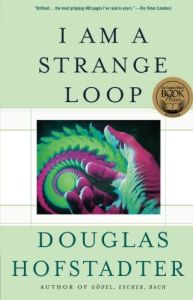Join getAbstract to access the summary!

Join getAbstract to access the summary!
Douglas Hofstadter
I Am a Strange Loop
Basic Books, 2008
What's inside?
The mystery of consciousness can be solved: the self is a looping logical structure stored in the brain.
Recommendation
When he was 27, Douglas Hofstadter wrote Gödel, Escher, Bach, a bestselling book loved by precocious teenagers and computer hackers. Its mixture of logic, music and visual art blended the richness of the humanities and the rigor of the sciences in an altogether unforgettable confection that won a Pulitzer Prize. But GEB, as it is affectionately known, was widely misunderstood. Now, at age 62, Hofstadter tries to get his message across more forcefully. Using invented dialogues, fanciful metaphors, mathematical analogies and light-hearted stories, he limns again and again his central point: The self is an illusion or, as he says, "a hallucination hallucinated by a hallucination." While this may seem a depressing or, at least, odd conclusion (If the self is unreal, then who is reading this?), it's not. In fact, Hofstadter’s conclusion has some surprisingly moving consequences about how human beings should regard themselves, other people and animals. This book is a punning, playful meditation on the logical, rather than neuro-biological, structure of the self. getAbstract highly recommends this gorgeous, rich, magical work to anyone who wants to see eye to eye with his or her "I."
Summary
About the Author
Douglas Hofstadter is College of Arts and Sciences Professor of Cognitive Science at Indiana University. He is also the author of Gödel, Escher, Bach.
















Comment on this summary